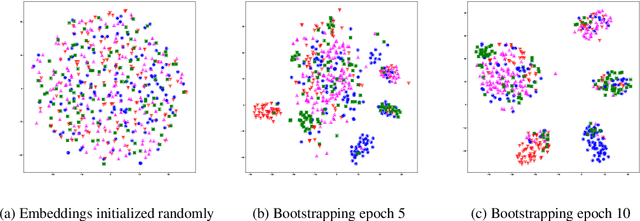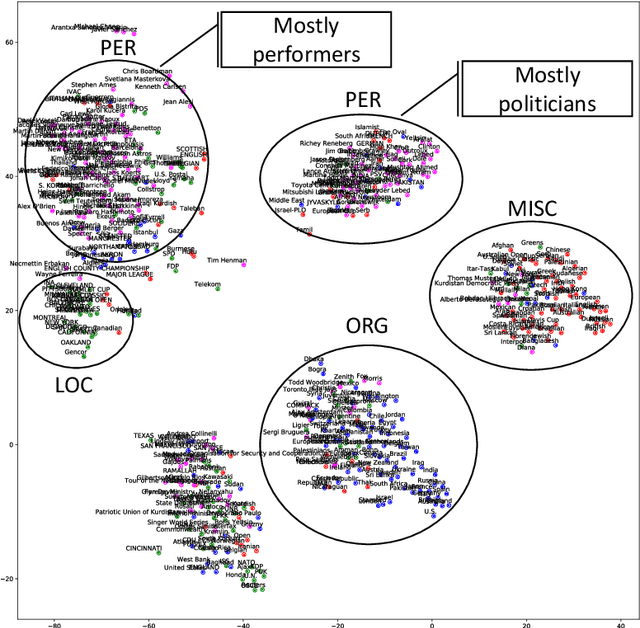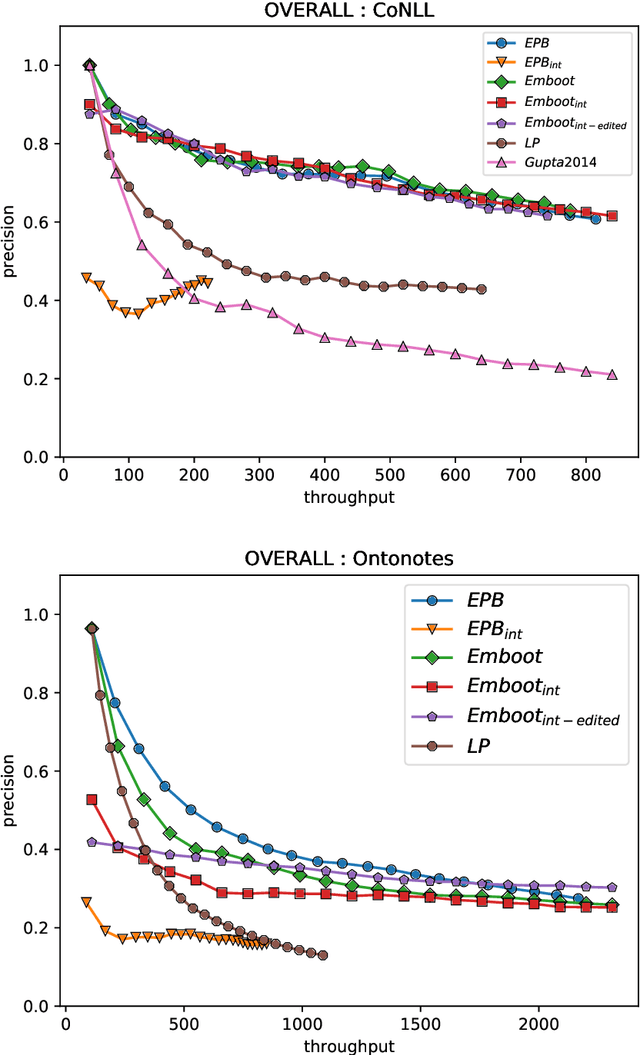Lightly-supervised Representation Learning with Global Interpretability
Paper and Code
May 29, 2018



We propose a lightly-supervised approach for information extraction, in particular named entity classification, which combines the benefits of traditional bootstrapping, i.e., use of limited annotations and interpretability of extraction patterns, with the robust learning approaches proposed in representation learning. Our algorithm iteratively learns custom embeddings for both the multi-word entities to be extracted and the patterns that match them from a few example entities per category. We demonstrate that this representation-based approach outperforms three other state-of-the-art bootstrapping approaches on two datasets: CoNLL-2003 and OntoNotes. Additionally, using these embeddings, our approach outputs a globally-interpretable model consisting of a decision list, by ranking patterns based on their proximity to the average entity embedding in a given class. We show that this interpretable model performs close to our complete bootstrapping model, proving that representation learning can be used to produce interpretable models with small loss in performance.
 Add to Chrome
Add to Chrome Add to Firefox
Add to Firefox Add to Edge
Add to Edge